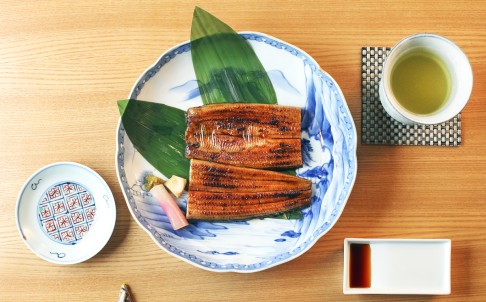Japan agrees to buy fewer eels from neighbours in bid to protect species
PUBLISHED : Thursday, 18 September, 2014, 8:53pm
UPDATED : Thursday, 18 September, 2014, 8:53pm
Associated Press in Tokyo

The Japanese eel is a popular delicacy. It was put on the international conservation "red list" earlier this year, indicating it faces a very high risk of extinction due to overfishing. Photo: Paul Yeung
Japan has agreed to cut purchases of juvenile eels from its neighbours by 20 per cent as part of moves to protect the endangered species.
The agriculture ministry said the agreement with Beijing, Seoul and Taipei, reached on Wednesday, called for reducing eel-fry hauls for one year, beginning in November.
The signatories also agreed to take other measures to try to save the species and limit eel catches, including setting up an organisation to coordinate management of the industry.
The Japanese eel is a popular delicacy. It was put on the international conservation "red list" earlier this year, indicating it faces a very high risk of extinction due to overfishing.

A two-day multilateral forum on the conservation of the endangered Japanese eel begins in Tokyo on September 16, 2014, seeking to create the first international framework on managing the species as a marine resource. Photo: Kyodo
Efforts to farm eels have made slow progress due to their complicated migratory patterns.
Japanese eel farmers buy most of the eels they raise from either South Korea or China.
The International Union for Conservation of Nature says barriers along waterways, pollution and changes in ocean conditions are hurting the eel species.
